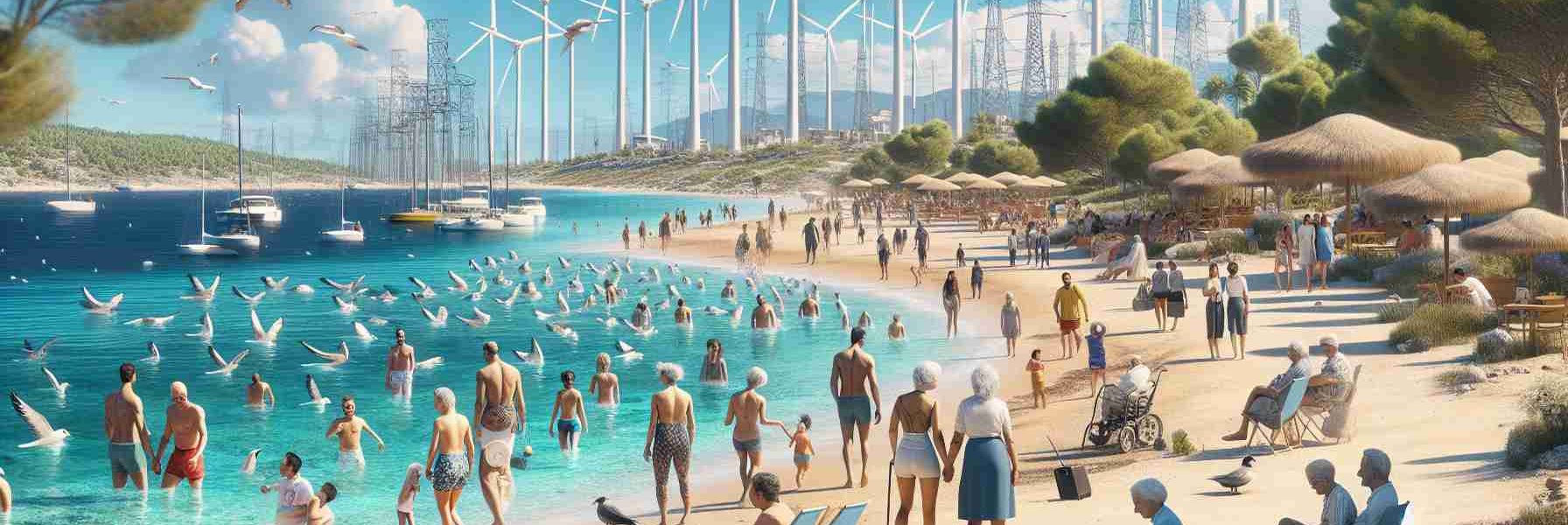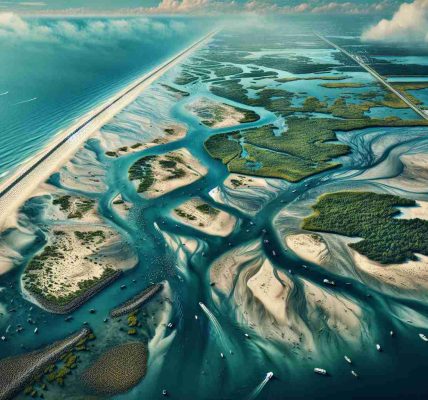A New Perspective on Majorca’s Tourism Dilemma
Majorca, known for its picturesque beaches and vibrant tourism scene, is currently at a crossroads between economic prosperity and the preservation of local livelihoods. The influx of tourists, while fueling a booming industry, has led to a housing crisis that is pushing many residents to the brink of homelessness.
The Human Cost
In the bustling streets of Palma, Sonia Ruiz, a 31-year-old mother, shares her struggles of finding affordable housing as rental prices skyrocket. Despite having a decent income, Sonia and her partner are unable to secure a new home due to exorbitant deposits and stringent rental conditions that exclude families with children or pets. Their story reflects the harsh reality faced by many locals in Majorca.
A Cry for Change
Protests against the tourism surge are gaining momentum, with activists like Pere Joan Femenia advocating for “Less Tourism, More Life.” The movement aims to address the negative impact of mass tourism on housing affordability, public spaces, and cultural heritage. Pere emphasizes the need to strike a balance between economic growth and environmental preservation by limiting the inflow of visitors and cruise ships.
Redefining Success
As Majorca grapples with record numbers of international tourists, the push for sustainable tourism practices is becoming increasingly urgent. Activists argue that the well-being of local residents and the preservation of the island’s unique identity should take precedence over unchecked growth in tourism revenue. It is a call for a more equitable and sustainable tourism model that benefits both visitors and the local community.
The Road Ahead
As the debate over the future of tourism in Majorca intensifies, the voices of dissent are becoming louder. The need to reevaluate the impact of tourism on local livelihoods and the environment has never been more pressing. Majorca stands at a critical juncture where decisions made today will shape the island’s future for generations to come.
The Battle for Sustainable Tourism in Majorca
Majorca, often synonymous with sun-soaked beaches and a bustling tourism industry, is facing a critical juncture as it grapples with the delicate balance between economic prosperity and environmental preservation. While the influx of tourists has undeniably boosted the island’s economy, the issue of sustainability is now at the forefront of discussions as concerns over housing affordability, cultural heritage, and environmental impact continue to mount.
The Unseen Environmental Consequences
One key question that emerges in the battle for sustainable tourism in Majorca is the often-overlooked environmental impact of mass tourism. Beyond the immediate challenges of housing shortages and cultural assimilation, the strain on natural resources, waste management, and carbon emissions pose significant threats to the island ecosystem. How can Majorca mitigate these environmental consequences while still catering to the demands of a growing tourism industry?
Tourism vs. Local Livelihoods
Another pressing concern revolves around the potential conflict between sustaining the livelihoods of locals and catering to the needs of tourists. As the island continues to draw in record numbers of visitors, the competition for resources, jobs, and housing intensifies, displacing many long-term residents and altering the social fabric of communities. How can Majorca strike a balance that ensures the well-being of both its residents and tourists?
Advantages and Disadvantages of Sustainable Tourism
Embracing sustainable tourism practices offers a myriad of benefits, including the preservation of natural landscapes, the promotion of authentic cultural experiences, and the enhancement of the overall quality of life for locals. On the flip side, implementing strict regulations on tourism activities may lead to a decline in revenue, potential job losses in the hospitality sector, and a shift in the island’s image as a popular tourist destination. How can Majorca navigate these advantages and disadvantages to foster a tourism model that is both financially viable and environmentally responsible?
In the ongoing battle for sustainable tourism in Majorca, finding common ground between economic interests, environmental concerns, and social well-being is paramount. By addressing key challenges and controversies head-on, stakeholders can work towards a more inclusive and resilient tourism industry that not only benefits visitors but also safeguards the island’s future for generations to come.
For further insights on sustainable tourism practices and initiatives in Majorca, visit Sustainable Tourism in Majorca.




